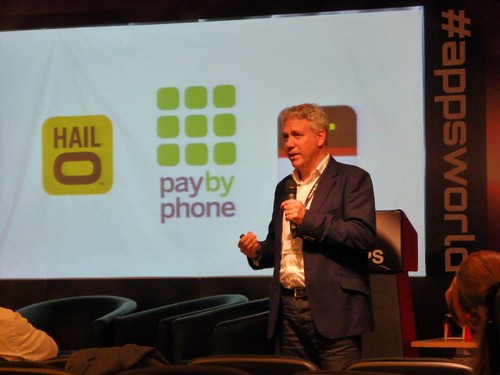British Gas and I go back a long way. For years they have provided me with heating and hot water, and until relatively recently with energy for cooking too. I won’t say it’s all been smooth running. For example, there was the time when they threatened to get the bailiffs round to my flat in order to read the meter that they had removed the week before. But on the whole they’ve been alright. I daresay were it not for the customary British reserve we’d be on first name terms by now. I’d write letters beginning,
“Dear British”
and go on to say how pleased I am to receive the latest bill and how much pleasure I have in enclosing payment.
Well, it was because of that “customary British reserve” I was taken by surprise by a talk by Andrew Brem, MD, Commercial & Product Development, Connected Homes, British Gas, at the Apps World conference and exhibition I attended recently. Most talks I have heard on the subject of the internet of things, by which is meant the connecting up of objects with people and other objects through wireless technology, have been completely nuts. They all seem predicated on the idea that we actually want our fridges to order stuff for us when stocks run a bit low, for example, or that we want to have conversations with the stuff we own. They also all seem predicated on the idea that we live in some sort of Shangri La, where nothing ever goes wrong.
Just to set the record straight, I am no Luddite by any means, but I have enough trouble putting my satnav in her place. Will my car journeys in the future, I worry, be punctuated by conversations like the following:
Satnav: Turn left in 100 metres.
Satnav: Turn left in 50 metres.
Satnav: TURN LEFT, YOU IDIOT!!
Satnav: You were supposed to turn left. (Muttering: Why do I bother?). Recalculating.
<brrring brrring>
Satnav: I have your fridge on the line.
Fridge: You need to get more milk.
Me: I’m cutting down on milk. I’m going to buy soya milk.
Fridge: I don’t have a code for that. Just buy normal milk.
Satnav: Recalculating.
Me: Look, will you please….
Satnav: Your shower is on the line.
Shower: when will you be in, and what temperature do you want me to be?
Me: Look, I’m trying to concentrate…
Satnav: Recalculating.
We’re told that you would be able to run your bath remotely so it’s all nice and ready for you when you come in. What if you get diverted and forget to tell your bathroom? So you’ll come home to a nice flood?
What’s that you say? There’ll be a sensor preventing that from happening? Really? I have a sensor in my car that bleeps when I leave my lights on. Except that it doesn’t. It used to, but I think it got fed up with telling me.

Andrew Brem speaking at Apps World 2013
I daresay lots of people much cleverer than I am have thought all this through, but my point really is this: most of the futuristic things we hear about are too much, too fast, for most people to come to terms with. Which leads me back to British Gas. Brem explained that rather than trying to persuade people about everything that could be automated, they had taken the view that it would be better to get people used to controlling just one aspect of their lives, that being heating and hot water. Well, OK, two aspects of their lives.
Hence Hive Active Heating connects up your thermostat, boiler and router, meaning you can control everything via an app or website. It seems OK, although I can’t speak from personal experience. This certainly seems a more sensible way of going about getting people used to the connected home of the future, although I am still not entirely convinced.
On a more serious note, there are some interesting questions that you could ask the kids you teach, such as (change the language as required):
- Are people ready for a completely connected home? Why/why not?
- What sort of thing could go wrong?
- What privacy issues could arise from the use of your data?
- What sort of things in your home really ought to be connected, and why?
- Same question as above, but for school.
- Could you set up a project right now in which a physical object is controlled by an app (yes, I know you could, but read the next part of the question), and be actually useful to someone? Ha!
- What else? Do let me know if you come up with any other interesting and useful questions, or if you have embarked on an internet-of-things project of some kind.
And now, if you’ll excuse me, I have a meeting with my satnav about that cul-de-sac I was led into the other day….
Related articles

